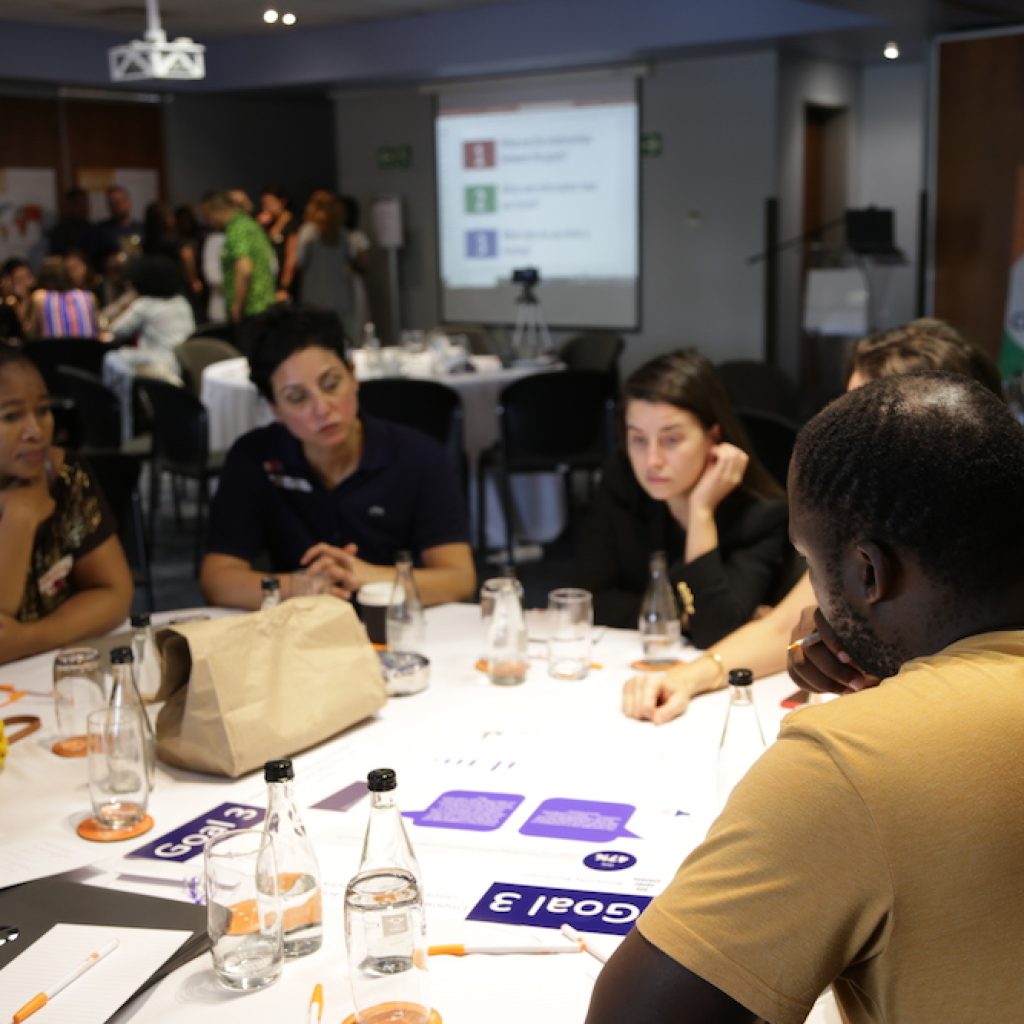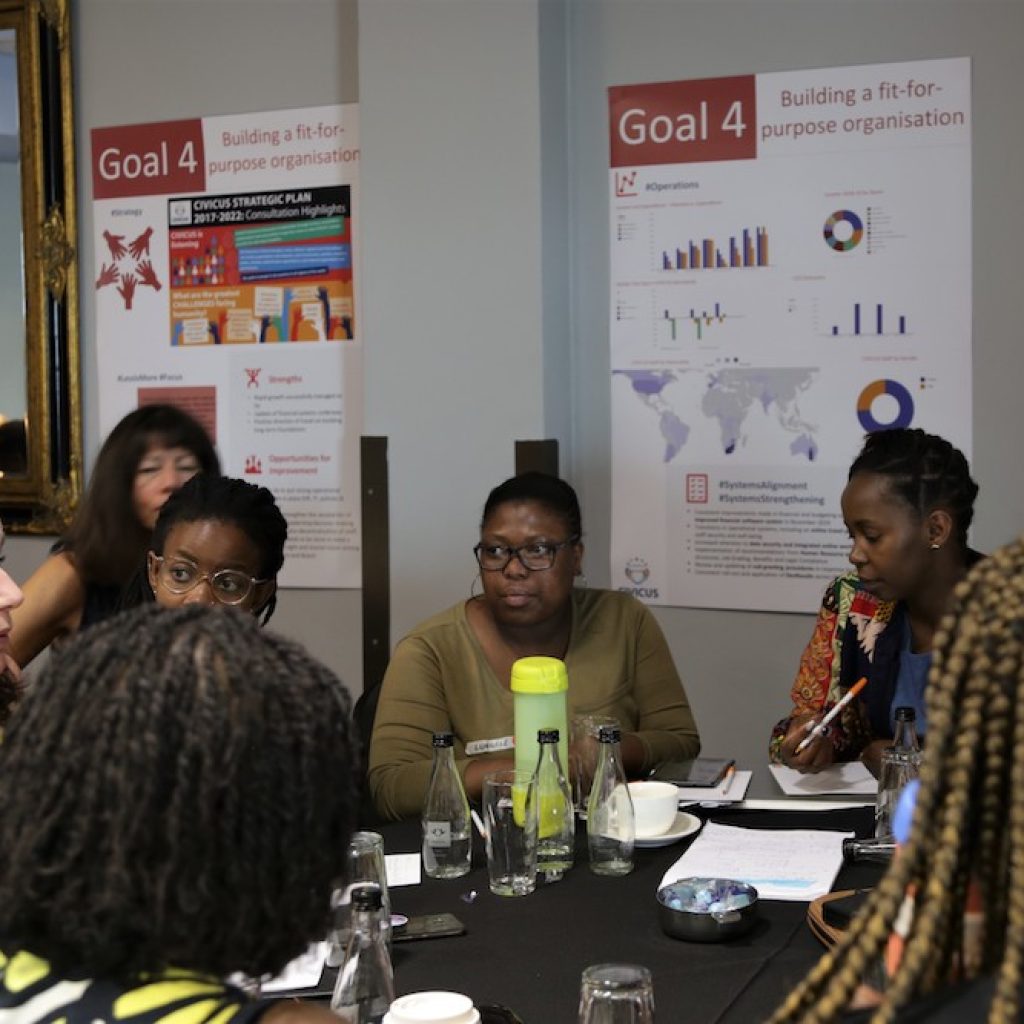As a global alliance of over 9,000 civil society organisations (CSOs) and activists, CIVICUS has a deep commitment to working towards transparency and accountability for our actions. This is particularly important as civil society continues to grow and become ever more visible in the public eye.
Accountability is not a report, but a dynamic and constructive relationship with stakeholders that improves the agency and credibility of civil society organisations. The best approaches to accountability are flexible, evolving as situations change. At CIVICUS, accountability means we are transparent about who we are and what we do. It also means we answer to our members, partners, donors, civil society and ourselves on what we have achieved and how we achieved it, as well as where we have not achieved what we set out to do. Our accountability reporting journey in itself has been a dynamic learning experience and we are happy to share some of the insights with you.
But while accountability should not only be about reporting and ticking boxes, timely transparent and self-critical reporting remains important to inform partners and the public. CIVICUS has been submitting annual accountability reports to Accountable Now since 2007/2008 (then still called INGO Accountability Charter). Those reports were initially based on the Global Reporting Initiative (GRI) NGO Sector Supplement which saw accountability more as a compliance and top-down approach, thus our initial reports were also more of a bureaucratic pragmatism than to accomplish any higher purposes.

Over time, with increasing public demands and developments around the Global Standard for CSO Accountability’s 12 Commitments as well as Accountable Now’s revised reporting mechanisms, our reports now present a more holistic and dynamic approach to accountability – as also outlined in CIVICUS’ Accountability Framework and Developmental Evaluation Framework. We are working with “Critical Learning Questions” to inform our planning and decision-making – some are similar to the reporting questions which guide Accountable Now members when writing their accountability reports. And we are striving to be more responsive to stakeholder feedback which is also a strengthened area in Accountable Now’s revised reporting format. So, CIVICUS’ accountability journey and the new reporting format complement each other quite nicely.
Let us share a more practical example: Previously we took note of the number of training hours each (staff) member received in the past year. Now, we recognise that it is of greater value for us within Accountable Now’s new reporting framework to reflect on how we know that people and partners that CIVICUS worked with have gained capacities, means, self-esteem or institutional strengths that last beyond our immediate intervention. Moreover, the following new questions under Cluster A have also pushed CIVICUS for greater sector learning and open reflections as part of our endeavour to be a learning organisation: What lessons have been learned in this period? How have the lessons been transparently shared among internal and external stakeholders?
In our most recent assessment by the Independent Review Panel for our 2018-19 report, the Independent Review Panel requested more information on CIVICUS’ monitoring of progress against our Strategic Goals 2017-2022 and allocation of resources, as well as an ensuring confidentiality when handling complaints as major improvement areas. We have already developed an action plan to tackle those challenges.
These “external pushes” definitely help us to prioritise certain weakness areas. As an example, in 2015-2016, our work around gender and diversity and internal diverse representation were seen as areas for improvement. Since then, we have devoted increased capacities and resources towards diversity and inclusion – such as appointing a Diversity and Inclusion Officer, creating working groups at the Secretariat and wider alliance level, and publishing a Social Inclusion Toolkit.

CIVICUS prioritised this area not only as an internal improvement area but as programme priority. For example, in December 2018, CIVICUS launched a new workstream dedicated to growing diversity and inclusion within CSOs and held the first global learning exchange in Uruguay dedicated to it. Participants from 15 countries discussed the obstacles that organisations and individuals face and have since formed DIGNA, the Diversity and
Inclusion Group for Networking and Action. These efforts have led to inspiring success stories from members and the alliance (see more updates on diversity and inclusion on p. 19-21 in most recent 2018-2019 report). Moreover, this area once regarded as a weakness is now even seen as a good practice for other Accountable Now members.
In their 2015-2016 assessment, the Independent Review Panel encouraged CIVICUS to finalise the development of our feedback and complaints handling mechanism. Again, having this external “pressure” ensured a timelier implementation on our end so that we published our online feedback form and Feedback Response Policy in early 2018. Feedback from our members and partners has since helped us identify areas of concern, for example about delays in our sub-granting to partners or lacking transparency on some of our websites regarding how to get in touch with us easily. All feedback and complaints are anonymously captured on DevResults (our monitoring software – see more details below) and regular summary reports presented to the Senior Leadership Team and CIVICUS Board for their consideration.
CIVICUS has recently invested in several systems and processes to capture and analyse programmatic and organisational data to improve data utilisation, inform decision-making, and ultimately help us effectively implement our Strategic Plan 2017-2022. This was accompanied through the creation of a new Impact & Accountability unit along the organisational restructuring in 2017. More specifically, we are using more evidence and data thanks to better data capturing and managing on DevResults.
We used a lot of data visualisation from DevResults data and indicators throughout our last accountability report, which helped make the information more digestible as well as provide solid backing for our statements made. Other teams, such as the CIVICUS Monitor team, already use DevResults data and visualisations in their team meetings to discuss progress and motivate through positive examples. In addition, they presented DevResults data at a Monitor Research Partners Workshop so that partners know how data on DevResults is disaggregated per civic space category.
Along with continuously reflecting on approaches to accountability – including our accountability reporting – at the Secretariat, we also work across the alliance to support greater dynamic accountability. One of our programmatic examples is Resilient Roots, an initiative which tests whether organisations who are more accountable and responsive to their roots – namely, their primary constituents – are more resilient against external threats. We are moreover using insights from Resilient Roots to improve our own accountability to CIVICUS’ primary constituents and how we integrate their voices into everything we do and publish.
Two and a half years after the implementation of DevResults, CIVICUS is now in a much better position to tell better success stories from the alliance which we feature in our social media accounts, annual report and the accountability report of course. However, we still struggle to engage our alliance members more structurally in the report writing, beyond illustrative evidence and quotes. We would be interested to hear from other Accountable Now members how they are tackling these challenges. What are the approaches? What kinds of tools are being used?
What are your reporting experiences with Accountable Now? Or do you have any inputs or ideas that can help CIVICUS find solutions to these challenges? Get in touch with Accountable Now’s Communications Coordinator, Bethany Keeley, to share your experiences!
Share this article!

Accountable Now is a global membership platform. We support our members – and civil society at large – to be more transparent, responsive, impact-focused, and locally led. Interested in becoming a member?
Accountable Now is a member of Accountability Lab’s global translocal network.
Privacy Policy | © Copyright 2024 Accountable Now